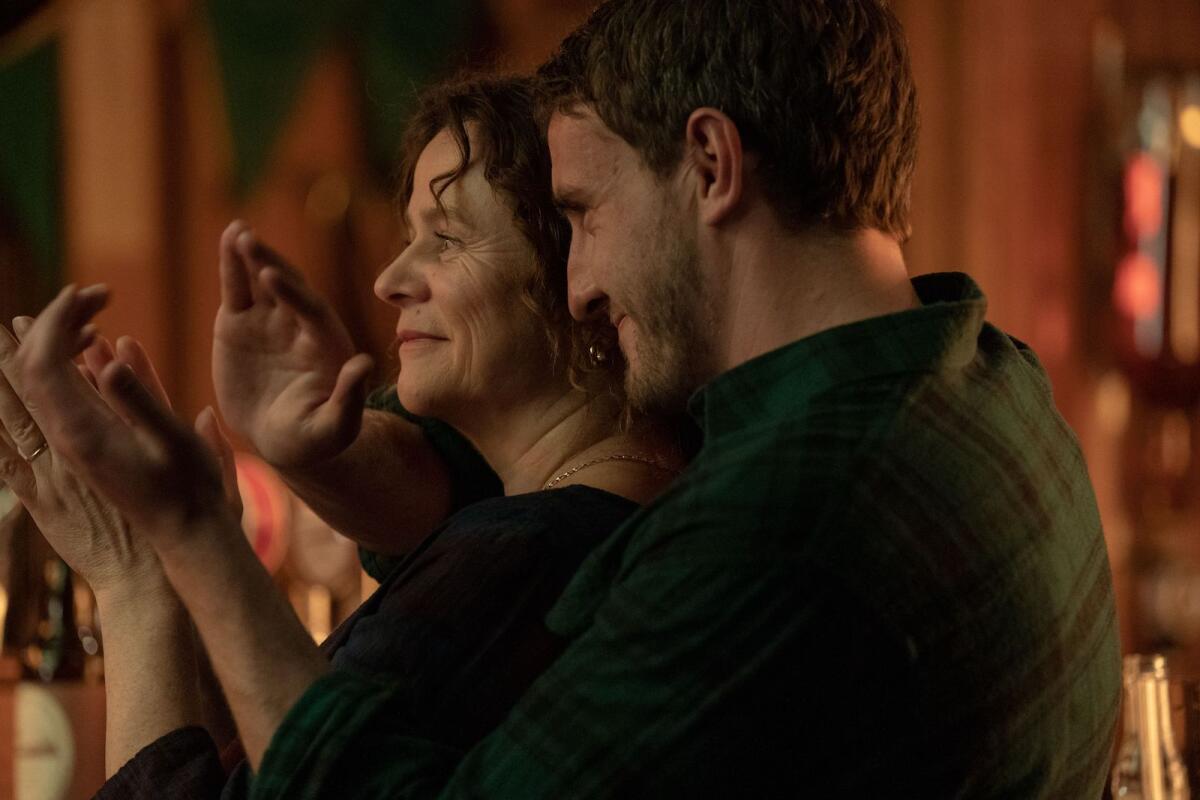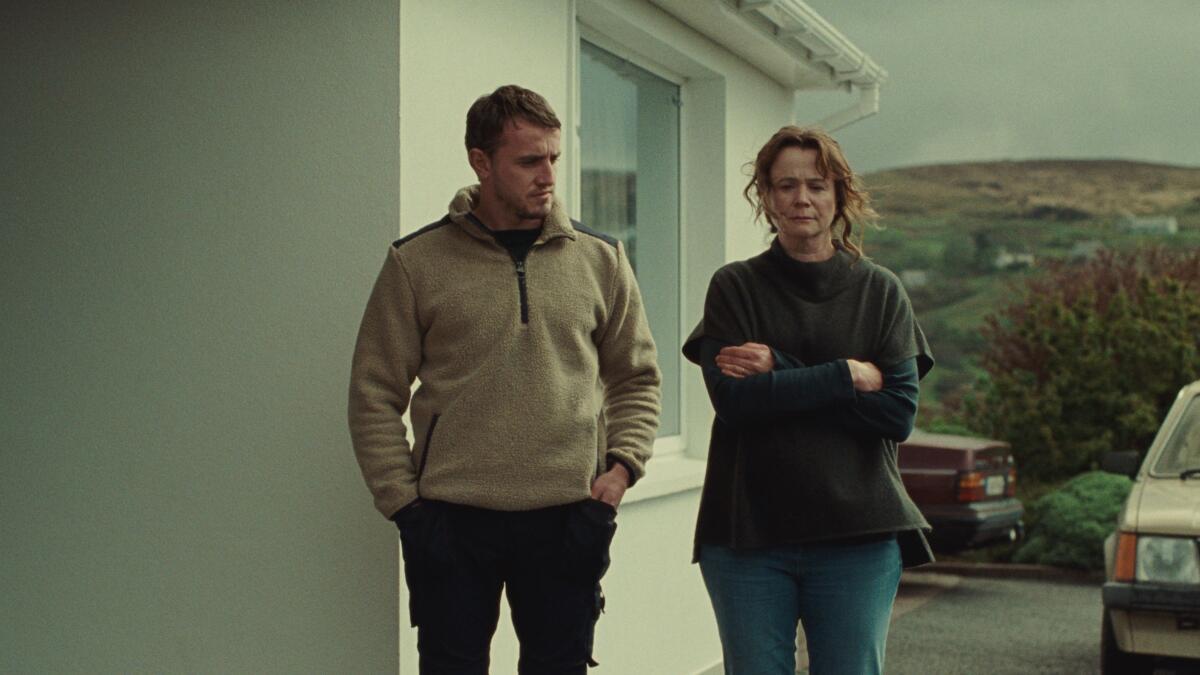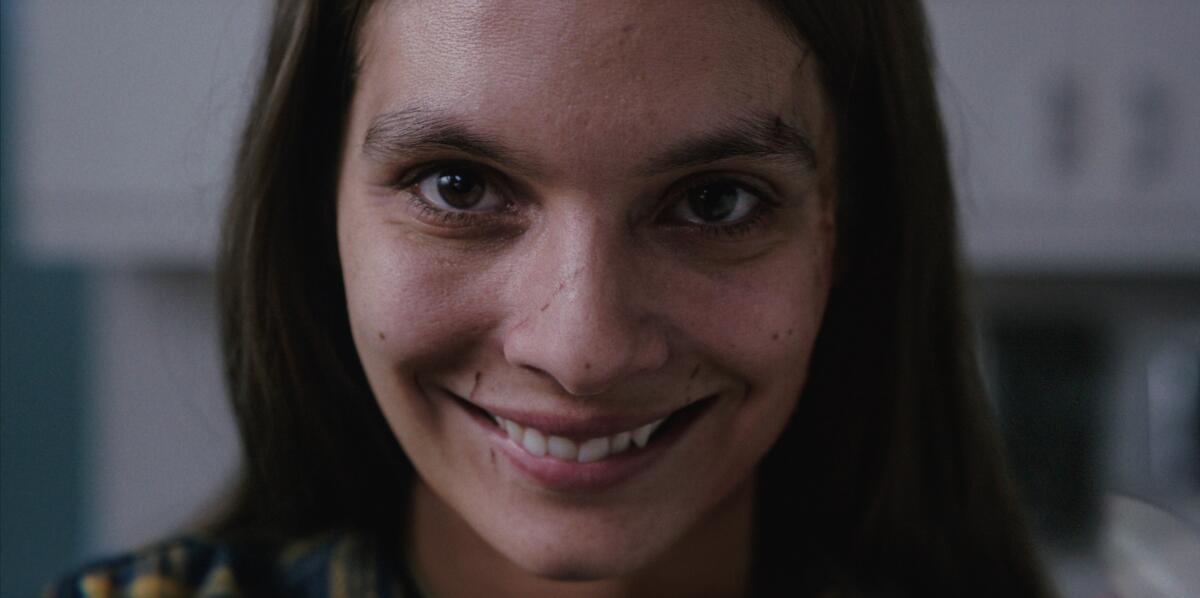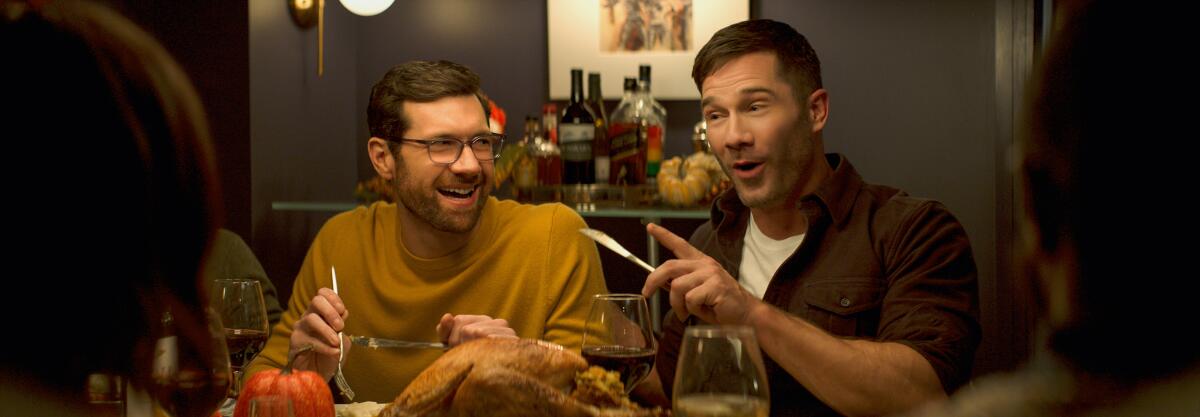‘God’s Creatures’ tests the limits of a mother’s love

- Share via
Hey! It’s Sonaiya Kelley covering for Mark Olsen. Welcome to another edition of your regular field guide to a world of Only Good Movies.
Only good movies
Get the Indie Focus newsletter, Mark Olsen's weekly guide to the world of cinema.
You may occasionally receive promotional content from the Los Angeles Times.
The Academy Museum turns 1. Last year, the Academy Museum screened “The Wizard of Oz” (1939) with live orchestra accompaniment as its inaugural screening. This year, the museum commemorates its first anniversary on Friday night with a screening of the Motown cult classic “The Wiz” (1978) featuring a live dance performance by the Debbie Allen Dance Studio youth performers. Starring Diana Ross, Michael Jackson, Nipsey Russell, Ted Ross, Lena Horne and Richard Pryor, the film boasts an all-Black cast and a score by prolific music mogul Quincy Jones.
A tribute to Park Chan-wook. The American Cinematheque will show the triple feature “Sympathy for Mr. Vengeance,” “Lady Vengeance” and “The Handmaiden” as part of its “Master of Cinema: A Tribute to Park Chan-wook” beginning Sunday at 11 a.m. at Santa Monica’s Aero Theatre. Later that evening, the director’s latest, “Decision to Leave,” will have its West Coast premiere at the Aero’s Mubi Theatre as part of Beyond Fest. The sold-out show will be followed by a Q&A with Park.
An ’80s horror tour. Embrace spooky season with the Criterion Channel’s 30-film tribute to ’80s indie horror, including John Carpenter’s “Prince of Darkness” (1987), Paul Schrader’s “Cat People” (1982), Kathryn Bigelow’s “Near Dark” (1987) and Dario Argento’s “Inferno” (1980). Throughout October, Criterion will also feature a 19-film vampire series and “Ari Aster’s Adventures in Moviegoing.”
Enjoying this newsletter? Consider subscribing to the Los Angeles Times
Your support helps us deliver the news that matters most. Become a subscriber.
‘God’s Creatures’
Directed by Saela Davis and Anna Rose Holmer from a screenplay by Shane Crowley, “God’s Creatures” revolves around a mother and son (Emily Watson and Paul Mescal) reunited after seven years apart. The reunion turns bittersweet after a lie she tells to protect him leads to blowback for herself, her family and the intimate fishing community they live in. The film is now playing in limited theatrical release and on demand.
For The Times, Noel Murray wrote, “‘God’s Creatures’ suffers some from being about people who are hesitant to share what they’re really thinking and feeling. But co-directors Holmer and Davis create a strong sense of rhythm and texture, capturing the feel of this town and how it holds its inhabitants tightly. The movie carefully illustrates how some places develop their own ideas of right and wrong, which to outsiders can seem like a localized madness.”
For the Wrap, Katie Walsh wrote, “The filmmaking craft on display and the control over the storytelling and suspense is exceptional. [Chayse] Irvin’s camera pushes in on characters with long, insistent zooms, picking certain people out of the landscape and bringing our eye to them, creating a sense of ominousness and foreboding pressure. That tension, and sense of place, is underlined in the music (by Danny Bensi and Saunder Jurriaans) and sound design, from the Irish folk songs to the drums, strings and beats that make up a tribal, feral sound.”
For the New York Times, Natalia Winkelman wrote, “‘God’s Creatures’ is ultimately a movie about the collision between a mother’s fidelity and her moral conscience, and Watson is terrific at telegraphing how these instincts grind against each other to terrifying ends. Even in a simple story line that sometimes wants for psychological clarity, the power she wields is undeniable.”
For Observer, Emily Zemler wrote, “Although the film unfolds in a fictional village, the setting feels grounded and real, and the treacherous seaside locale offers an added poignancy to the story. ... The film is beautifully shot, with strong acting from all sides. Mescal, in particular, is a far cry from his character in ‘Normal People,’ revealing a depth and range to his acting abilities. But it’s Watson who makes this film what it is. She captivates the viewer as she wrestles with what’s right and wrong, then tragically faces the consequences of her misjudgment.”

Enjoying this newsletter? Consider subscribing to the Los Angeles Times
Your support helps us deliver the news that matters most. Become a subscriber.
‘Smile’
Written and directed by Parker Finn, the horror film “Smile” follows a therapist (Sosie Bacon) who is the latest recipient of a contagious curse that compels its victims to kill themselves. The film is now playing in theaters.
For Tribune News Service, Katie Walsh wrote, “Bacon’s performance as well as Finn’s detailed craft manage to hold tension, and the audience’s attention, for the nearly-two-hour runtime of this horror curio, which is as opaque and somewhat silly as the smiles that drive it.”
For the Hollywood Reporter, Lovia Gyarkye wrote, “For all its wandering in predictable territory, ‘Smile’ could easily have been consigned to the mounting pile of contemporary work exploring trauma; clichés about hurt people hurting others and healing one’s inner child do at times claw their way to center stage here. But the movie also teases a far more interesting truth about the lengths people will go to in order to distance themselves from mental disorders or perceived instability.”
For IndieWire, Marisa Mirabal wrote, “‘Smile’ navigates unhealed trauma through a supernatural lens and mischievous juxtaposition, despite feeling like a shadow of other stories. With rare moments of dark comedy and irony, [Finn] is able to expose the forceful nature of society’s expectation to be happy and presentable despite the suffering that may lurk under one’s skin. Overall, ‘Smile’ delivers a captivating and claustrophobic mental hellscape that will cause one to both grimace and grin.”
For Slant Magazine, Rocco T. Thompson wrote, “The horror genre is thoroughly rotten with films that use allegorical tools to explore how people attempt to exorcise their personal demons, but ‘Smile’ brings audiences that catharsis in a most unexpected of forms. This is, after all, a mainstream studio effort about a being whose crocodile smile reflects back at us the gaping emotional wounds we hide behind our own painted-on grins.”

‘Bros’
The Judd Apatow-produced “Bros,” directed by Nicholas Stoller from a script he co-wrote with star Billy Eichner, is the first major studio romantic comedy centering around two gay men. The film, now playing in theaters, features an entirely LGBTQ principal cast.
For The Times, Justin Chang wrote, “‘Bros,’ which has little use for straight actors (or tragedy), sets itself up as a meaningful corrective. Though hardly the only gay romantic comedy of note to emerge in recent months (like Hulu’s ‘Fire Island,’ whose Bowen Yang pops up here as a lofty Provincetown millionaire), it does boast the notable big-studio precedent of an entirely LGBTQ principal cast, albeit one whose racial and sexual diversity happens to prop up a love story between two white, cisgender, gay men — something the movie acknowledges with both a wink and a wince.”
For the Daily Beast, Nick Schager wrote, “‘Bros’ walks its talk about wanting to celebrate the authentic realities of LGBTQ+ Americans in all their messy, contradictory glory, and though it does that with a few too many italicized speeches about its intentions, its sincerity ultimately wins out. Moreover, Eichner and Stoller’s decision to fashion their gay rom-com in a visually, narratively and thematically familiar mold has the effect of filtering the radical through the traditional (a notion underscored by its country-music finale).”
For Vanity Fair, Richard Lawson wrote, “Eichner has gleefully accepted the largesse of a major studio and made something that is particularly his. What he doesn’t do, thankfully, is close things off at the end. There is little sense of definitiveness here; ‘Bros’ may be some kind of trailblazer depending on which metric you’re using, but it’s not smug about that status. Its happy blare is only getting the party started — or, maybe more accurately, keeping it going.”

Only good movies
Get the Indie Focus newsletter, Mark Olsen's weekly guide to the world of cinema.
You may occasionally receive promotional content from the Los Angeles Times.




